This site is fend for by our readers . We may earn a commission , at no cost to you , if you buy through links .
You ’ve heard the murmurs about Bichons being aggressive . You ’re wondering , Is there any truth to it ? Let ’s embark on a journeying to uncover the temperament of this dear breed .
We ’ll research the component that mold their doings , from education and environment to health and genetics . We ’ll turn over into the secrets behind their actions , debunk myths and break the true nature of theBichon Frise .

Training and Environment
right training and a confident environment are crucial for a well - acquit Bichon . socialisation with other dogs and humans help forbid aggression .
Health and Genetics
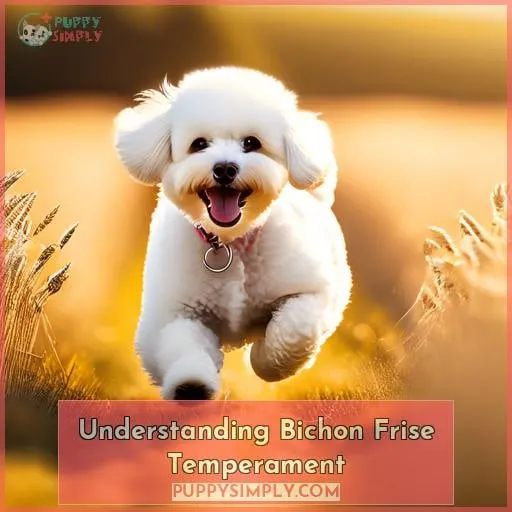
wellness issues and genetic predispositions can contribute to aggressive behaviour . Regular checkups andresponsible cover practiceshelp ensure a level-headed , well - behave frump .
Debunking Myths
The myth that all Bichons are aggressive is false . Withproper care and training , they are typically friendly and make love companions .
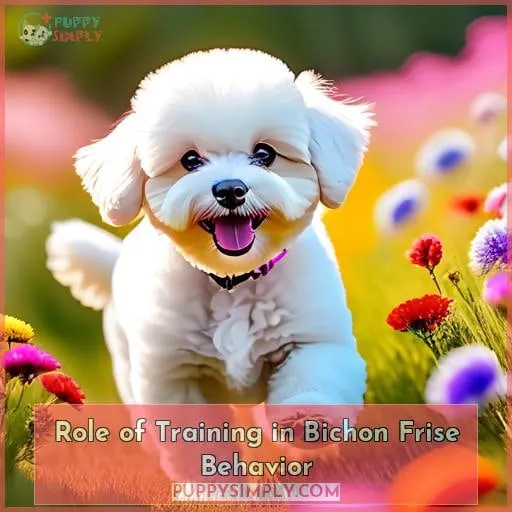
Revealing the True Nature
Bichons are known for their tidings , allegiance , and affectionate nature . They make splendid comrade for families with children and other positron emission tomography .
In conclusion , Bichons are not inherently aggressive . With proper care , training , and socialization , they are loving and loyal fellow traveller .

tabular array Of Contents
Key Takeaways
Understanding Bichon Frise Temperament
As a preferred owner , you could appreciate bichons ’ inherent friendliness and know nature .
However , their alertness can lead to territorial barking , and you should be cognisant of the potential for aggression when they feel their space is being intrude on .
Understanding these traits can help you make a harmonious surround for your bichon .

Natural Affection and Sociability
You ’ll bump the Bichon Frise to be a naturally affectionate and sociable companion .
Their playful nature make them delightful playmates , while their territorial barking ensures you ’re always aware of stranger .
century of company have ingrained friendliness into their deoxyribonucleic acid , realise them ideal family pets .

Their unlearned friendliness far outweighs any potency for aggression .
Alertness and Territorial Behavior
The Bichon Frise ’s watchfulness and territorial behavior make it an attentive watchdog .
It bark to alarm you of strangers , but this vigilance can sometimes pass to stranger reactivity .
They may hold their nutrient , toys , or district from other dogs , exhibit imagination guarding and dog - to - dog aggressiveness .
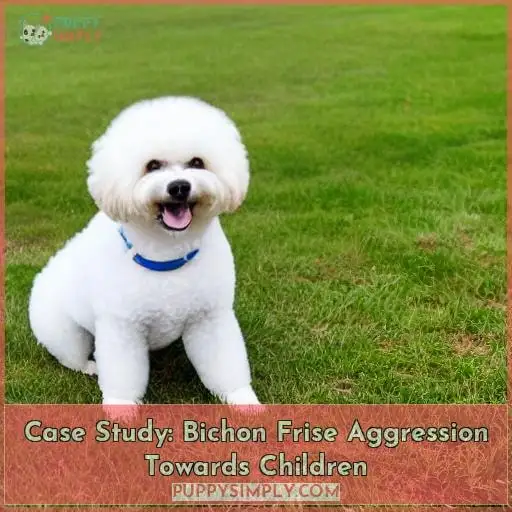
Understanding these instincts can help you manage your Bichon ’s behavior , preventing escalation and further harmony in your house .
Historical Role as Companion Dogs
Their history as fellow traveller dogs has mold their amicable nature .
For centuries , Bichons have been cherish as lapdog , prized for their affectionate and playful demeanor .
Their popularity soar in royal court and noble home , cementing their reputation as charming companion .
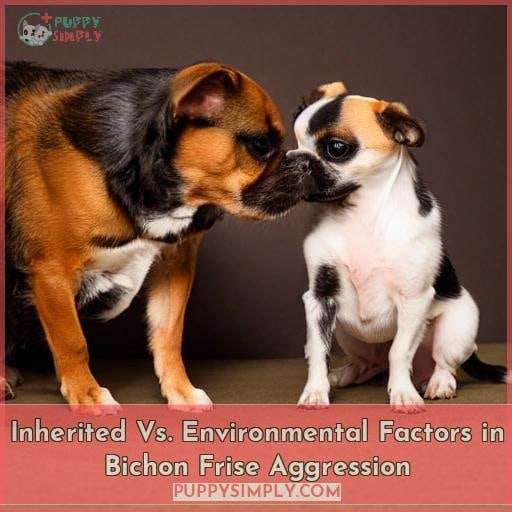
While their disposition can change , they generally prosper in apartments and make excellent pets for family of all sizing .
Their playful and tender nature makes them a joyousness to have around , living up to their historical part as homo ’s good champion .
Role of Training in Bichon Frise Behavior
Training bet a vital role in shaping your Bichon Frise ’s doings .
right education from puppyhood , usingpositive reward techniquesand focusing on obedience , socialising , and positive behavior , can help prevent aggression and promote a well - behaved , happy dog .
Importance of Puppy Socialization
Puppy socializationis key to developing a well - round off Bichon Frise .
Early intervention reduces care and hostility , leading to a more surefooted and adaptable fellow .
Positive interactions with mass and animals make a founding for honorable behaviour .
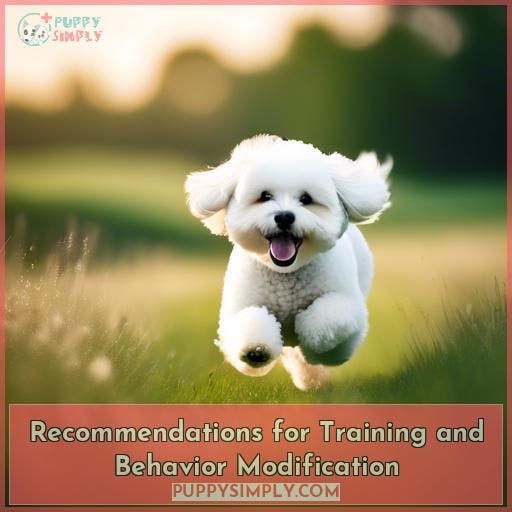
show a reproducible subprogram to render structure and security .
Prevent detachment anxietyby gradually increasing alone prison term .
Enroll in obedience classes to reward undecomposed behaviour and curb undesirable leaning .
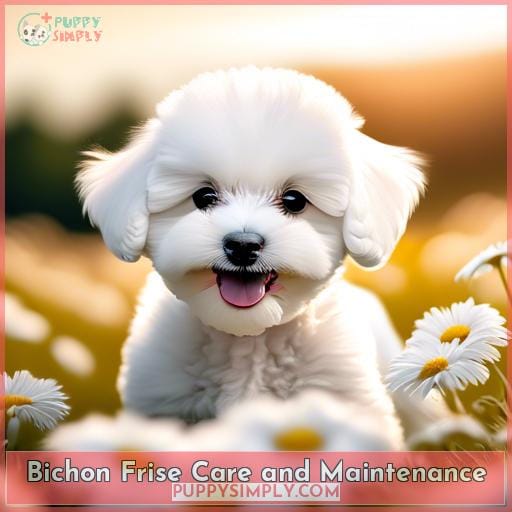
Regularvet check - upsensure health issue do n’t actuate hostility .
Positive Reinforcement Techniques
apply positive reinforcement techniques will relent better event than penalisation when training your Bichon Frise .
produce a payoff organisation that motivates your dog with dainty , praise , or act .
take clicker education to mark desired conduct and shape them over clip .
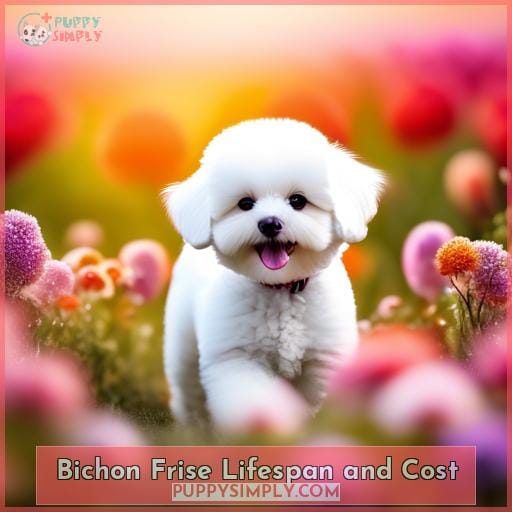
Treat motivation can be a potent tool in encouraging honest behaviour and discourage unwanted actions .
Focus Areas in Training
In train your Bichon Frise :
This comprehensive approach will shape your Bichon ’s disposition , further harmony and respect .
Environmental Factors Influencing Bichon Frise Behavior
you could serve your Bichon Frise thrive by :
make a harmonious environment for your Bichon Frise is essential for their well - being and happiness .
Importance of a Stable Home Environment
Create a stable place environment to promote calmness and minimize anxiety in your Bichón Frisé .
Their sensitive nature thrives on routine and body , so stick to logical feeding , walking , and encounter schedule .
secure your family extremity treat the dog with esteem and affection , avoiding harsh child’s play or penalisation .
A proportionate house tighten stress and Foster a well - behaved , roll in the hay companion .
Interactions With Other Pets
How do interactions with other pets influence your Bichon Frise ’s behaviour ?
Nurturing incontrovertible interactions with other pet is important .
Mental and Physical Stimulation
Alongside overconfident interactions with other pets , providing your Bichon Frise with ample mental and physical stimulation will help prevent tedium and destructive behavior .
deficient physical exercise can lead to indite - up energy and frustration , potentially triggering hostility .
Create an enrich indoor surroundings with synergistic toys , puzzle , and games to keep your Bichon ’s head dynamic .
Positive interactions with mass , both adult and children , can also render mental stimulation and reduce aggression .
Health and Bichon Frise Aggression
Your Bichon Frise ’s aggressiveness might stem from inherent health issues causing irritability .
Regular chit - ups catch problems early , preventing behavioural changes .
Maintaining a goodish weighting and dieting supports their well - being , reducing aggression triggers .
Impact of Underlying Health Issues
Role of Regular Health Check-ups
By scheduling regular health checkups with your vet , you could identify and address any underlying wellness topic that may be get aggressiveness in your Bichon Frise .
Regular health checkup are essential for observe potential trouble early on , grant for quick handling and foreclose the escalation of aggressiveness .
The frequency of these medical exam should be determined in audience with your veterinarian , considering component like your frump ’s age , overall health , and any specific concern you may have .
even health checkups offer peace of judgement , ensuring that your Bichon Frise ’s aggression is n’t a result of an underlying health experimental condition .
Importance of a Healthy Weight and Diet
Maintaining your Bichon Frise ’s healthy weight and dieting helps prevent aggression by cover underlying health problems and providing essential food .
Obesity can aggravate joint nuisance , increase temper . An improper diet can lead to nutrient deficiencies , affecting temper and behavior .
By offering a balanced dieting and maintaining a healthy free weight , you ’re not only care for their strong-arm well - being but also their emotional constancy .
Bichon Frise and Separation Anxiety
As a Bichon Frise possessor , you ’re in all likelihood aware of their affectionate and sociable nature .
However , you may be concerned about their potentiality for separation anxiety .
This article will research the signs and consequence of separation anxiety in Bichons and render scheme for managing it efficaciously .
Signs and Consequences of Separation Anxiety
Beyond health issues , take in out for sign of breakup anxiousness , like destructivebehavior and unreasonable barkingwhen you ’re by .
These behaviour stem from your Bichon ’s deep - seat fear of being alone .
prolong isolation can exasperate anxiousness , potentially leading to self - harm or destructive behaviors .
Providing society , breeding , and desensitization can helpmanage separation anxietyand keep your Bichon happy and secure .
Managing Separation Anxiety
To curb legal separation anxiousness , gradually accustom your Bichon Frise to being alone .
Start by leaving it alone for short catamenia , gradually increasing the length .
Provide a good and comfortable blank space for your Bichon Frise when you ’re away .
Engage in even usage and playday to wear down your dog out before get out it alone .
Consider seeking professional aid from a vet or brute behaviourist for stark event .
Never penalise your Bichon Frise for separation anxiousness , as it will only exasperate the problem .
Case Study: Bichon Frise Aggression Towards Children
You ’re not alone in dealing with Bichon Frise aggression towards children .
This case bailiwick delves into the potential reason :
It also offer insights into resolving aggression through effectivetraining techniques and behaviormodification .
Role of Obedience Classes
While obeisance classes can be worthful , they may fall short in tackling aggression outcome in Bichon Frises .
Not all category are create adequate ; selecting one that specializes in aggression is crucial .
radical training can be overwhelming for aggressive dogs ; single sessions take into account tailored attention .
Prong collar , when used correctly , can be asafe and effectivetool in training aggressive Bichons .
Impact of Grooming and Health Procedures
One might wonder if there ’s a connection between your Bichon ’s aggression and :
The groomer ’s concern and suggestion of euthanasia warrant attention .
Moreover , the dog ’s obsessive bat of its manus after anaesthesia get up dubiousness about :
It ’s all important to consider these factors when value your Bichon ’s disposition and seek appropriate solutions .
train Experience :
Consider if the prepare process itself or specific techniques do tension or discomfort to your Bichon , potentially leading to defensive behavior .
Anesthesia Effects :
Explore the possibility of inauspicious reactions to anesthesia or any underlying health issues that may have been exacerbated during the process .
Hot Spot Treatment :
Examine whether the treatment for the hot smirch caused innervation or pain , contributing to your Bichon ’s irritability and aggression .
Inherited Vs. Environmental Factors in Bichon Frise Aggression
If you ’re enquire about the causes of aggression in your Bichon Frise , you ’re not alone .
We ’ll count at the function genetic science and your own behavior may play in your dog ’s temperament , so you may understand your companion well .
While genetics lead to a detent ’s temperament , your natural action as an owner can either aggravate or mitigate any inherent tendencies .
Breeder’s Perspective
The breeder ’s standpoint offers insight into whether the hostility stems from genetics or environmental influence .
A responsible breeder will provide information on :
They can also extend guidance on socialization strategies to foreclose aggression from developing .
For representative , the breeder might suggest :
Role of the Owner in Dog’s Behavior
You may rule yourself examining your role in your dog ’s behavior , considering both inherit and environmental factor in its aggression .
Are you providing consistent training with clear boundaries and expected value ?
Are you honour good behavior and warn high-risk behavior ?
Are you run into yourdog ’s physical and genial stimulation needs ?
Are you provide a unchanging and nurturing home environment ?
Are you assay professional help if needed ?
Reflect on these questions and take responsibility for your pawl ’s deportment , working towards a proportionate family relationship build on trustingness and respect .
Recommendations for Training and Behavior Modification
If you ’re facing aggression issues with your Bichon Frise , consider using a prong apprehension and crate as training tools .
You might also want to research self - training options or look up a professional trainer to help you treat the underlying causes of your dog ’s behavior .
Use of Prong Collar and Crate
Regarding training and behavior alteration , assume a combination approach of using a prong arrest and crate can give promising results .
A prong collar , when used fitly , can in effect dissuade unwanted behavior .
likewise , crate training instills discipline and provide a safe , comfortable infinite for your Bichon .
Self-training Vs. Professional Training
In addition to self - training options , you may want to consider working with aprofessional dog trainerto address your Bichon Frise ’s aggression issuance .
They possess the expertise and experience to :
While self - training can be effective , professional grooming offers :
in the end enhancing the chances of successful behaviour change .
Bichon Frise Care and Maintenance
If you want your Bichon Frise to be well-chosen and goodish , you involve to take proper charge of it .
Grooming Needs
To keep your Bichon Frise ’s pelage healthy and beautiful , you ’ll need to brush it regularly .
This will aid remove dirt , detritus , and tangles , and it will also help to distribute raw rock oil throughout the pelage .
If you do n’t sweep your Bichon Frise on a regular basis , its coat may become matte up , which can run to cutis irritation and other health problem .
You should also take your Bichon Frise to a professional groomer every 4 - 6 weeks for a bathtub , haircut , and nail trim .
Exercise and Diet
Your Bichon Frise ’s daily exercise and balanced diet will assure their well - being .
Daily pass , fetch , and interactional play fulfill their workout need .
A diet rich in lean protein , healthy fats , and essential vitamin keeps them set .
Do n’t bury genial stimulation with puzzler toys and training sessions to keep boredom at bay .
Regular grooming , let in brushing and occasional trimming , maintains their beautiful coat and prevents mats .
Bichon Frise Lifespan and Cost
Bichon Frises go 12 to 15 year .
Puppies be between $ 200 and $ 2,500 , while adoption fees usually run around $ 150 .
Bichon Frise mixes are coarse .
Other Non - Sporting Group dogs have diverse temperament .
Average Lifespan
With proper care and attention , your Bichon Frise ’s lifespan can reach an norm of 12 to 15 years .
While the price of a Bichon Frise pup can swan from $ 200 to $ 2,500 , adoption fees typically vacillate around $ 150 .
If you ’re undecided to a mixed breed , you could retrieve a Bichon Frise intermixture for a lower price .
Cost of Ownership
Depending on line of descent , you may expect to give between two and three thousand dollars for a Bichon Frise pup .
acceptation fees typically hover around a hundred and fifty dollars .
Factor in the first year ’s expense , let in vaccinations , fixing or spaying , and supplies , which can reach up to two thousand dollars .
Monthly price for food , grooming , and pet indemnity average a hundred dollar sign .
Over its lifetime , you ’re calculate at disbursement between fifteen and twenty thousand dollars .
Bichon Frise Mix Breeds and Adoption Options
you may adopt Bichon Frise mix or purebreds from rescue and protection at a lower monetary value .
Mixed stock Bichons often inherit favourable traits from both parent , resulting in divers temperaments and singular personalities .
Consider adoption as a cost - effective choice while apply a loving home to a deserve dog .
Research honourable rearing practice to see your unexampled furry friend fare from a reputable root .
Frequently Asked Questions (FAQs)
Are bichons born aggressive or is it learned behavior?
Bichons ’ aggression can stem from genetics or learned behavior .
Inherited traits may lend , but environmental factor , like improper grooming or negative experiences , often act a significant theatrical role .
Understanding the root crusade is all-important for effective behavior modification .
How can I prevent my bichon from becoming aggressive towards children?
With patience and consistency , you could prevent your Bichons ’ aggressiveness towards children .
Start training betimes .
socialise your hound .
Provide a unchanging home environment .
How do I discipline my bichon for aggressive behavior?
To discipline your Bichon ’s aggression :
If hostility persists , essay professional assistance .
Are there specific training methods or techniques that are effective in curbing aggression in bichons?
Harness the power of positive support .
Establish logical boundaries .
Tame your Bichon ’s aggressive tendency .
transubstantiate them into a loving and obedient associate .
What are some common health issues that may contribute to aggression in bichons?
underlie health effect can trigger aggressiveness in your Bichon .
hurting , discomfort , or illness can cause petulance and defensive behavior .
even checkups help catch problems early , forbid behavioral modification .
Conclusion
Take a consequence to reflect on the journeying we ’ve embarked on together , search the complexness of Bichon Frise temperament .
Their inbuilt loving nature , coupled with proper training and a nurturing environment , can give a loyal and fond companion .
With your commitment , you may unlock the reliable potential of your Bichon , create an unbreakable bond built on love , respect , and apprehension .